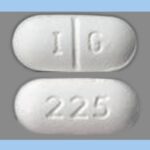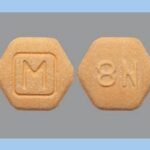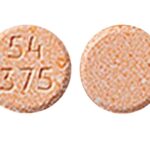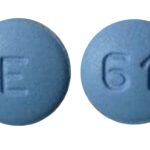PA 917 Pill: Uses, Dosage, Side Effects, Warning
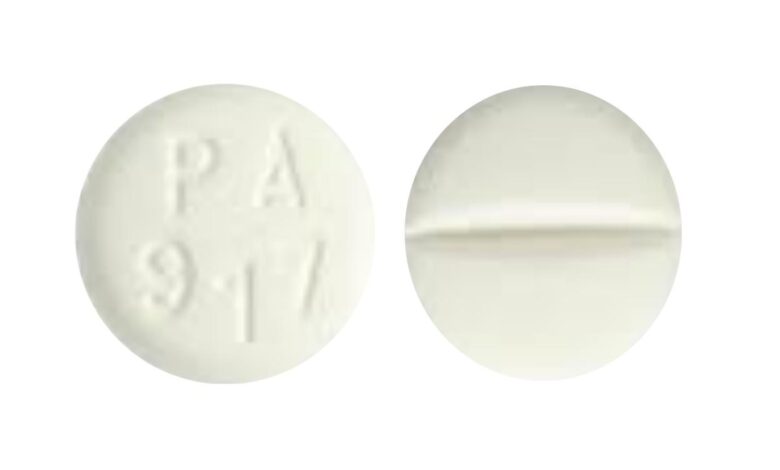
The white, round pill with the imprint PA 917 has been identified as Torsemide 20 mg supplied by Pliva Inc.. PA 917 pill is used alone or in combination with other medications to treat high blood pressure. PA 917 pill is used to treat edema (fluid retention; excess fluid held in body tissues) caused by various medical problems, including heart, kidney, or liver disease. Torsemide is in a class of medications called diuretics (‘water pills’). It works by causing the kidneys to get rid of unneeded water and salt from the body into the urine.
High blood pressure is a common condition, and when not treated, it can cause damage to the brain, heart, blood vessels, kidneys and other parts of the body. Damage to these organs may cause heart disease, a heart attack, heart failure, stroke, kidney failure, loss of vision, and other problems. In addition to taking medication, making lifestyle changes will also help to control your blood pressure. These changes include eating a diet that is low in fat and salt, maintaining a healthy weight, exercising at least 30 minutes most days, not smoking, and using alcohol in moderation.
How should I take PA 917 pill?
PA 917 pill comes as a tablet to take by mouth. It usually is taken once a day. To help you remember to take PA 917 pill, take it around the same time every day. Follow the directions on your prescription label carefully, and ask your doctor or pharmacist to explain any part you do not understand. Take PA 917 pill exactly as directed. Do not take more or less of it or take it more often than prescribed by your doctor.
PA 917 pill controls high blood pressure and edema but does not cure these conditions. Continue to take PA 917 pill even if you feel well. Do not stop taking PA 917 pill without talking to your doctor.
What are the side effects of PA 917 pill?
Common side effects of PA 917 pill include:
• Constipation
• Cough
• Decreased sex drive
• Diarrhea
• Difficulty having an orgasm
• Dizziness
• Electrolyte imbalance
• Excessive or increased urination
• Headache
• Impotence
• Indigestion/heartburn
• Insomnia
• Joint pain
• Nausea
• Nervousness
• Runny or stuffy nose
• Stomach upset
Less common side effects of torsemide include:
• Dizziness on standing
• Ear damage (ringing in the ears [tinnitus] and hearing loss, usually reversible; avoid doses greater than 200 mg)
• Fatigue
• Hyperuricemia
• Itching
• Low back pain
• Muscle cramps
• Rash
Serious side effects of torsemide include:
• Atrial fibrillation
• Electrolyte disorders
• Lightheadedness and fainting
• Liver disease
• Low blood potassium (hypokalemia)
• Low blood pressure (hypotension)
• Skin swelling due to an allergic reaction
• Ventricular fibrillation
Postmarketing side effects of torsemide reported include:
• Gastrointestinal system: Pancreatitis, abdominal pain
• Nervous System: Numbness and tingling, confusion, visual impairment, loss of appetite
• Hematologic: Low white blood cell count (leucopenia), low platelets (thrombocytopenia), anemia
• Hepatobiliary: Increase in liver transaminases, gamma-glutamyltransferase
• Metabolism: Thiamine (vitamin B1) deficiency
• Skin/hypersensitivity: Stevens-Johnson syndrome, toxic epidermal necrolysis, photosensitivity reaction, itching
• Urogenital: Acute urinary retention
This document does not contain all possible side effects and others may occur. Check with your physician for additional information about side effects.
What other drugs interact with PA 917 pill?
If your doctor has directed you to use this medication, your doctor or pharmacist may already be aware of any possible drug interactions and may be monitoring you for them. Do not start, stop, or change the dosage of any medicine before checking with your doctor, health care provider, or pharmacist first.
• Torsemide has no known severe interactions with other drugs.
• Serious interactions of torsemide include:
o amikacin
o amisulpride
o cisapride
o gentamicin
o kanamycin
o neomycin PO
o netilmicin
o paromomycin
o squill
o streptomycin
o tobramycin
• Torsemide has moderate interactions with at least 150 different drugs.
• Torsemide has mild interactions with at least 76 different drugs.
This information does not contain all possible interactions or adverse effects. Therefore, before using this product, tell your doctor or pharmacist of all the products you use. Keep a list of all your medications with you, and share this information with your doctor and pharmacist. Check with your health care professional or doctor for additional medical advice, or if you have health questions, concerns, or for more information about this medicine.
If you experience a serious side effect, you or your doctor may send a report to the Food and Drug Administration’s (FDA) MedWatch Adverse Event Reporting program online (http://www.fda.gov/Safety/MedWatch) or by phone (1-800-332-1088).

